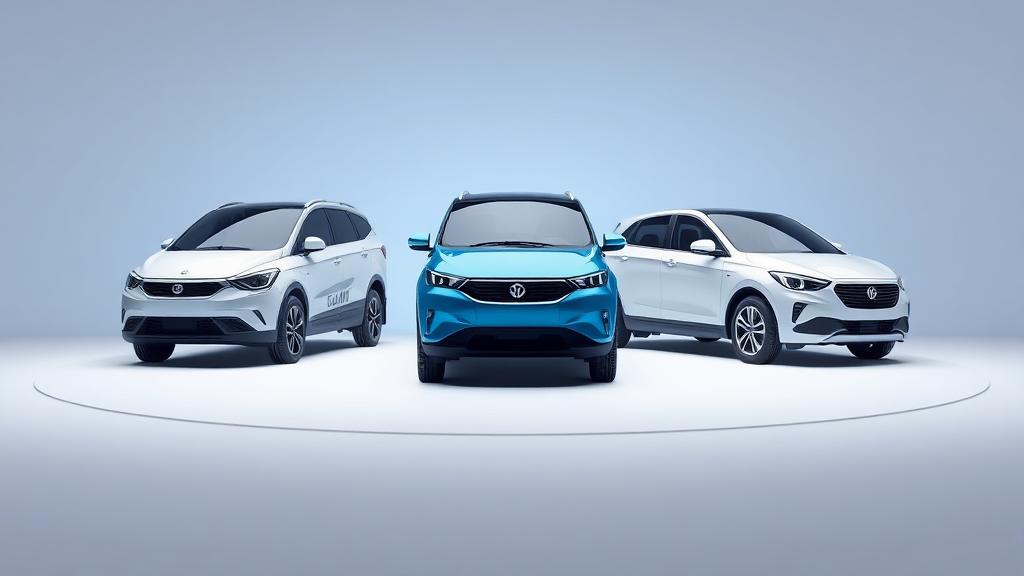
You know, for the longest time, buying Electric Cars in India has felt like solving a never-ending puzzle. Diesel? Petrol? Or should we just take the electric route and go all-in on the future?
Now that it’s 2025, the confusion has only grown bigger. Fuel prices shoot up without warning, electric charging stations are popping up everywhere, and diesel cars are slowly being pushed out of big cities. So obviously, the big question is — which type of car actually helps you save money in the long run?
Let’s not just talk numbers on paper — let’s talk real-life stuff like cost, comfort, maintenance, resale, and even the environment.
💰 Initial Cost: EVs Still Burn a Slight Hole in Pocket
Let’s be honest — for most of us, the first thing we check is the on-road price. Especially when every rupee counts, that first cost pinches the most.
| Car Type | Example Model | Starting Price (Ex-Showroom) |
|---|---|---|
| Petrol | Maruti Baleno | ₹6.7 lakh |
| Diesel | Kia Sonet Diesel | ₹9.8 lakh |
| Electric | Tata Tiago EV | ₹8.7 lakh |
See, electric cars still cost a bit more upfront. That’s mostly because of the battery — it’s like the “heart” of an EV and quite an expensive one. Earlier, diesel cars used to be costlier than petrol ones, but thanks to strict rules and fewer diesel options now, that gap has narrowed.
⛽ Fuel Cost: EVs Leave the Others Far Behind
This is where electric cars start to make real sense.
| Vehicle Type | Fuel Cost/km (Approx.) | Annual Running Cost (15,000 km/year) |
|---|---|---|
| Petrol | ₹7/km | ₹1,05,000 |
| Diesel | ₹6/km | ₹90,000 |
| Electric | ₹1.2/km | ₹18,000 |
Now think about this — if you drive regularly, an EV can save you over ₹4 lakh in five years compared to petrol. Even diesel will cost you ₹3.5 lakh more. That’s not small money. You could easily take a family vacation or even part-pay a new scooter with that saving.
🔧 Maintenance: EVs are Like “No Tension” Vehicles
When it comes to regular upkeep, electric cars are just… simpler.
Petrol and diesel cars need frequent oil changes, filters, and clutch replacements. It’s part of the deal. But EVs? Hardly any moving parts. No engine oil. No clutch. Less chance of something breaking down.
| Vehicle Type | 5-Year Avg Maintenance Cost |
|---|---|
| Petrol | ₹60,000 – ₹90,000 |
| Diesel | ₹70,000 – ₹1,00,000 |
| Electric | ₹15,000 – ₹30,000 |
So yeah, EVs are up to 70% cheaper to maintain in the long run. Imagine skipping those regular garage visits — sounds peaceful, right?
🛞 Driving Feel: What’s It Like on the Road?
Let’s talk about how it feels behind the wheel. Because driving isn’t just numbers — it’s an experience.
Petrol Cars:
Smooth, light, and peppy. Great for daily drives in the city. You don’t get that push-pull feel, but it’s refined.
Diesel Cars:
Strong on torque — which means better for highways or carrying heavier loads. But a bit noisy, and not so great for short city drives (they don’t like traffic jams).
Electric Cars:
One word — instant. Instant torque, instant pickup. Completely silent, no gears. Feels very modern. Especially fun in stop-go traffic.
So if you enjoy driving and want something new-age, EVs bring a smile to your face.
⛽ Charging vs Refuelling: Who Wins?
Petrol/Diesel:
No fuss. Pull in, fill up in 5 minutes, and off you go. You’ll find pumps even in small towns.
EVs:
At home, charging takes 6–8 hours.
Fast-chargers? Around 45 mins to 1 hour.
Not ideal for highway trips yet, especially in remote areas.
If you’re someone who mostly drives in the city and has a charging point at home, EVs are super convenient. But for folks doing regular long trips, petrol or diesel still has the edge — for now.
🌱 Environmental Side: EVs Are Way Cleaner
We all can feel it — the air in cities is getting worse. Pollution levels are scary. That’s where EVs really step up.
- Diesel: Heavy emissions, especially the harmful NOx gases
- Petrol: A bit better, but still pollutes
- Electric: No emissions while driving (though depends on electricity source)
If you care about the future — yours and your kids’ — EVs clearly help breathe easier.
🔄 Resale Value: What Happens After 5 Years?
Petrol Cars:
Still doing well. Easy to sell, especially in smaller towns or tier-2 cities.
Diesel Cars:
Struggling. With bans already in Delhi NCR and more coming, resale is dropping.
Electric Cars:
A surprise winner. Battery warranties and more awareness mean second-hand EVs are in demand.
EV resale may not be at its peak yet, but it’s rising — faster than many expected.
📊 So, What’s the Final Math?
Let’s break it down simply. Here’s a 5-year ownership cost for each type:
| Type | Initial Cost | Fuel Cost | Maintenance | Total Cost (Approx.) |
|---|---|---|---|---|
| Petrol | ₹7 lakh | ₹5.25 lakh | ₹70,000 | ₹12.95 lakh |
| Diesel | ₹9 lakh | ₹4.5 lakh | ₹90,000 | ₹14.4 lakh |
| Electric | ₹9 lakh | ₹90,000 | ₹30,000 | ₹10.2 lakh |
✅ Winner: Electric — lowest cost in the long run
❌ Diesel — losing favour, especially in cities
🟡 Petrol — safe choice, but not future-ready
If you are intrested in electic cars this blogs will surely help you
– Top 5 Budget Electric Cars in India (2025)
– Check EV policies by state (Government Source)
If you are intrested not electic cars this blogs is for you:
– Latest fuel prices across Indian states
– Compare car loan interest rates in India
Leave a Reply